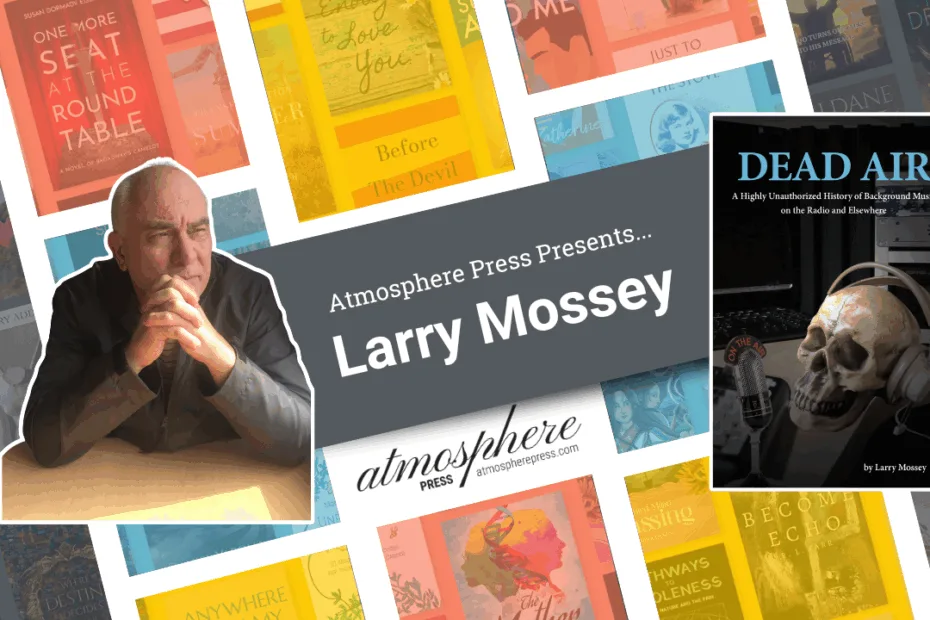An Interview with Larry Mossey

A former background music announcer, Larry Mossey has enjoyed careers in radio, newspapers, and advertising. As a young radio newbie in the 1970s, his first gig was at a Beautiful Music radio station in Albany, New York. Dead Air is a memoir of those seven years, and a nostalgic look at background music in all its forms—music that was meant to be heard but not listened to.
Who/what made you want to write? Was there a particular person, or particular writers/works/art forms that influenced you?
I’ve wanted to write since my early childhood, probably because I loved to read. When I was thirteen I started writing my great novel, Cave of Time, about a young brother and sister who wander into a cave maze, and every time they find an exit they’re in a different time in history. It remains unfinished.
What other professions have you worked in? What’s something about you that your readers wouldn’t know?
After seventeen years in radio, I left for a newspaper job. Writing and editing for print was fun, and when I became the marketing director, I also got to write and produce all the radio and TV spots. After a few years I left the newspaper to open an ad agency where I got to do the same thing but make more money.
Tell us the story of your book’s title. Was it easy to find, or did it take forever?
The title Dead Air came to me immediately when I began to write the book. Dead air is a common broadcasting term for periods of silence, usually unintentional. But it also described the kind of ‘passive listening’ music I played on the radio.
What part of publishing your book made it feel real for the first time?
When I held an actual hard copy of my published book in my hands.
If your book had a soundtrack, what are some songs that would be on it?
My book is about radio in the 1970s, so the soundtrack is a cinch. Anything disco, especially Donna Summer and the Bee Gees. But also pop hits and one-hit wonders like Convoy, The Pina Colada Song, and Brown Girl in the Ring by Boney M. There may not be another era in contemporary history so associated with music as the 1970s.
What’s one thing you hope sticks with readers after they finish your book?
Dead Air began as a personal radio memoir, but whenever I gave my elevator pitch to friends, they always wanted to know more about the music I played, so I took the hint and expanded Dead Air to be a book about background music and passive listening in all its many forms, as well as my memoir to give context to it all.
What was the most rewarding/meaningful part of publishing your book?
I guess in the end it was the opportunity to share with readers on the subject of background music. It’s the least remembered music, but in some ways the most powerful because it can not only relax and influence moods, but it can, and does, seep into our subconscious and make us think and do things we ordinarily might not think and do. It’s sneaky, subliminal, and seductive. And wonderful.
What creative projects are you currently working on?
To avoid tackling a screenplay of Dead Air, I’ve written a couple of dozen podcast scripts about topics explored in the book. To avoid recording them, I play with my granddaughters.
Are you a writer, too? Submit your manuscript to Atmosphere Press.

Atmosphere Press is a selective hybrid publisher founded in 2015 on the principles of Honesty, Transparency, Professionalism, Kindness, and Making Your Book Awesome. Our books have won dozens of awards and sold tens of thousands of copies. If you’re interested in learning more, or seeking publication for your own work, please explore the links below.
